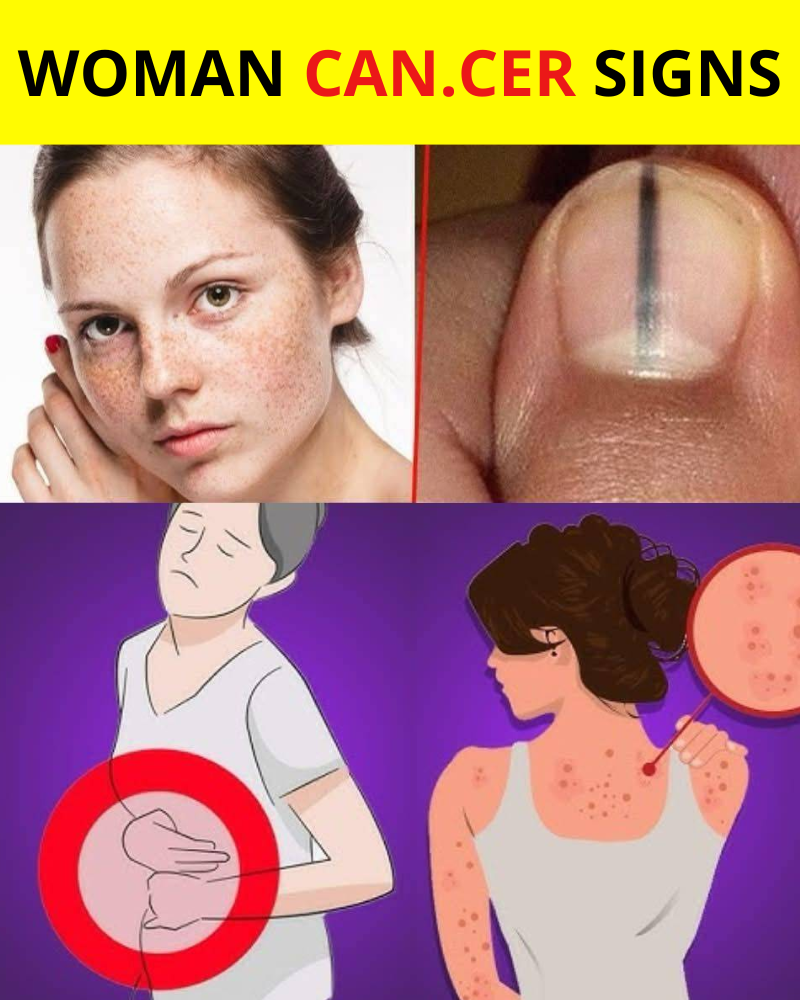
The American Cancer Society reports a growing incidence of cancer among women under 50.
While cancer-related deaths are declining due to early detection, many women—especially those who are young and generally healthy—tend to overlook certain warning signs.
However, cancer can affect anyone, regardless of age, making it crucial to recognize potential symptoms. Women are particularly susceptible to breast, endometrial, cervical, lung, colorectal, and skin cancer, so it’s essential to stay aware of unusual changes in the body.
Symptoms That Shouldn’t Be Ignored
Abnormal Vaginal Bleeding
More than 90% of individuals with endometrial cancer experience non-menstrual bleeding. Those with irregular periods may struggle to distinguish abnormal bleeding, making it vital to track menstrual cycles.
Unusual bleeding—such as heavy flow, spotting between periods, bleeding during intercourse, or bloody discharge—should prompt a visit to the doctor. Additionally, postmenopausal women should never experience vaginal bleeding or spotting. The MD Anderson Cancer Center advises seeking immediate medical attention if this occurs.
Persistent Fatigue
Feeling tired after a demanding week or periods of stress is normal, but exhaustion should improve with rest. If fatigue persists despite adequate sleep and begins interfering with daily activities, it’s time to consult a doctor. Blaming a busy schedule and hoping for relief from “one good night’s sleep” may overlook an underlying health issue.

Breast or Nipple Changes
Breast cancer is predominantly found in women, with symptoms often discovered unintentionally. Lumps in the breast or underarm can become noticeable during daily activities like bathing, shaving, or even scratching an itch. Other potential warning signs include swelling, nipple discharge, dimpling skin, pain, redness, skin thickening, and nipples turning inward.
Unusual Urinary Changes
Frequent urination is often linked to pregnancy, but tumors can also exert pressure on the bladder in a similar way. If increased urination occurs without an obvious reason—such as pregnancy or a change in fluid intake—it’s important to get checked.
Additionally, symptoms that mimic a urinary tract infection, including painful urination or difficulty emptying the bladder, should not be dismissed. Frequent urination can also be a sign of diabetes, which requires medical attention.
Bowel Habit Changes
According to a 2018 scientific review, women are more prone to bowel disorders than men. However, chronic or new-onset changes in bowel habits shouldn’t be ignored.
Persistent constipation, diarrhea, abdominal pain, weakness, fatigue, unexplained weight loss, or stools that are thin or bloody may indicate an underlying issue, including colorectal cancer. Individuals with conditions like hemorrhoids, irritable bowel syndrome (IBS), or inflammatory bowel disease (IBD) should be particularly mindful of any unusual or worsening symptoms.
Abdominal, Pelvic, or Back Pain
While many women experience pain due to menstrual cramps or conditions like endometriosis, ongoing discomfort in the abdomen, back, or pelvic region could signal ovarian, colorectal, or endometrial cancer, according to WebMD. This type of pain is often accompanied by digestive issues such as bloating, gas, cramps, and unexplained weight loss.

Unexplained Night Sweats
Menopause and pregnancy commonly cause night sweats, but excessive sweating—especially if it occurs frequently enough to drench clothing or bed sheets—should be evaluated. Persistent night sweats without a clear cause may be linked to lymphoma or leukemia.
Changes in Appetite
Certain cancers can affect appetite in different ways. Some individuals may lose interest in eating, while others may feel full all the time. Ovarian and other abdominal cancers can cause this sensation. Additionally, tumors may make swallowing difficult, cause mouth sores, or alter how food tastes and smells, according to the National Cancer Institute. Some cancers also produce hormones that interfere with the body’s ability to recognize hunger signals.
Unintentional Weight Loss
While deliberate weight loss can lower cancer risk, unexplained and sudden weight loss may be a red flag. People who lose weight without changes in diet or exercise should consult a doctor. Cancer can alter metabolism or drain extra energy to sustain itself, leading to unintentional weight loss, according to a 2018 study.
Skin Changes
Skin cancer can develop anywhere on the body, including unexpected areas like the scalp, fingernails, and between toes. While many skin irregularities are harmless, certain symptoms warrant attention. According to Cancer Research UK, a sore that itches, bleeds, crusts, scabs, or remains unhealed for more than four weeks should be examined. Additionally, changes in the appearance of freckles or moles could indicate skin cancer.

Cancer Symptoms or Something Else?
Most cancer symptoms can also be associated with less serious conditions. If any of these warning signs seem familiar, don’t panic—but don’t ignore them either. Seek medical advice and discuss how long the symptoms have been present, as well as their severity. Doctors can help determine the root cause, whether it’s cancer or another health concern. If you feel your concerns aren’t being taken seriously, consider seeking a second opinion from another medical professional.




